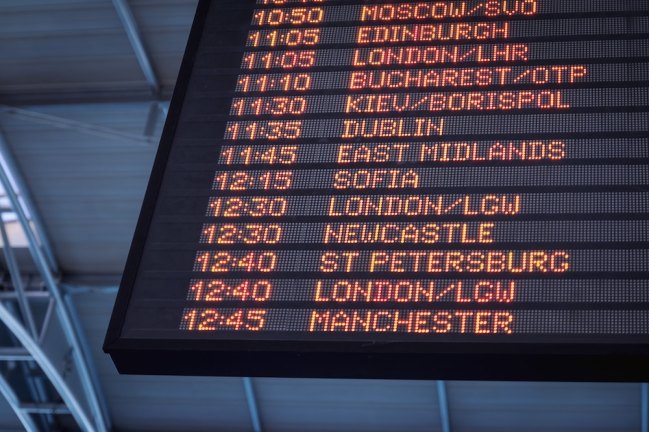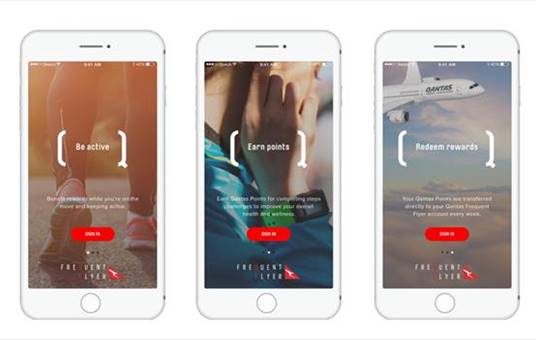
Like most industries, corporate travel is changing rapidly thanks to emerging technology trends and more efficient processes.
New, connected technology is allowing businesses to decrease their travel spend, manage costs efficiently, and streamline processes in a experience that resembles what they get when travelling for leisure.
To get a better understanding of these emerging tech trends, travel software company Amadeus spoke to several industry leaders on what they believe companies and employees should prepare for in 2020.
1//Voice is the next frontier
There’s a major shift happening between human and computer interaction, particularly with voice technology across Asia Pacific. As travel companies continue to invest in voice technology, corporations will have quicker access to the traveller’s profile, real-time alerts and in-flight amenities checks within a single natural sentence. This means travel consultants and travellers won’t have to go through multiple screens; they can achieve the same goal – using voice.
Nishank Gopalkrishnan, chief business officer at Musement, believes voice will be the differentiator moving forward.
“If you think of it, talking to one another is the most natural thing humans do,” he said.
“Typing, swiping and other forms of interaction are all just intermediate steps as we are unable to efficiently talk to a machine. This will change, and companies that devise the most efficient way of selling high value and high engagement products via voice will lead in the future.”
2//Duty of care more important than ever
In most countries, employers have a legal and ethical duty of care to their employees, which means they should take all reasonable steps to ensure employees’ health, safety and wellbeing. The case for companies to actively manage their travellers’ well-being is growing stronger every day.
It’s been proven that happier, well-rested and healthy business travellers are more productive, more present, more likely to maintain strong relationships with their clients and suppliers, and more likely to stay with their employers.
Solutions such as instant messaging systems provide real-time assistance and disruption management wherever employees and travellers are.
Mr Jun Noguchi, senior manager at Mitsubishi Fuso Truck and Bus Corporation, said the safety and security of employees when travelling is a company’s number one priority.
“For us, it’s essential that we have a trusted travel technology partner that will help us focus on operations and then cost optimisation,” he said.
“This will ensure we always undertake the right duty of care priorities and help us continue to give our employees the highest quality experiences whilst they travel for work.”
3//The rise of ‘super-apps’
Corporate travellers are juggling so many apps, so the ‘one-app’ or ‘super-app’ concept is very appealing, giving them the ability to book, make changes, get an itinerary, claim expenses all on one single app.
It is one of the top trends among big players in the mobile space. Much like WeChat has done for years in China, several other companies in Asia like LINE, KakaoTalk, Grab, and Go-Jek are expanding to other verticals to add functionalities and content to their apps, from mobility options to food delivery, media, payments and travel, targeting more business travellers.
Moving forward, travellers will expect everything to be easily accessible to them through one, simple to use app. Corporations needs to bear this in mind when reviewing their solutions that they make available to their employees.
4//Feeling the impact of 5G
Faster networks through 5G are now being deployed across Asia Pacific and are enabling other technologies to take off, changing the way that we move around our own cities and travel to others.
Thanks to the increased speed and amount of data, there will be more advanced connected devices, from smart homes to self-driving cars and smart cities, and increased personalisation through artificial intelligence.
This greater connectivity will allow travel companies to provide a seamless travel experience in which a business traveller can go door-to-door from their home to a hotel with little hassle and a truly personalizsd service.
The frictionless experience will continue at their hotel with 5G smart hotels – offering faster connection speeds for smartphones and connected devices. With 5G, the end traveller is going to be better connected than ever before. Corporations need to be ready for this and ensure they best equip their employees to take advantage of this 5G hyper-connectivity.
5//Mastering security with a seamless travel experience
The security of corporate travellers will always be the number one priority for corporations and travel management companies. However, maximum security doesn’t always mean a smooth travel experience.
One trend to look out for in the future is how the travel industry will master security alongside a seamless travel experience. Innovation in this space is well underway and biometrics are playing a huge role in making this happen.
Long queues and scanning passports will become a thing of the past as travel becomes frictionless. Amadeus is already working with several airports to use biometrics to reduce wait times and move towards a remotely-hosted biometrics solution for the industry.
By providing a seamless travel experience, business travellers will be able to spend less time waiting in queues and spend more time focused on the job they are there for.
“In business travel there are two goals that corporations need to consider, security and seamless travel,” said Faisal Ariff, founder and CEO at BorderPass.
“The tricky part is applying them in such a way that one goal isn’t achieved at the expense of the other. Better yet, technology needs to evolve that can improve both sides of the equation.
“For business travellers there are some opportunities in credentialing that could help authorities in risk profiling and crowd management.”

